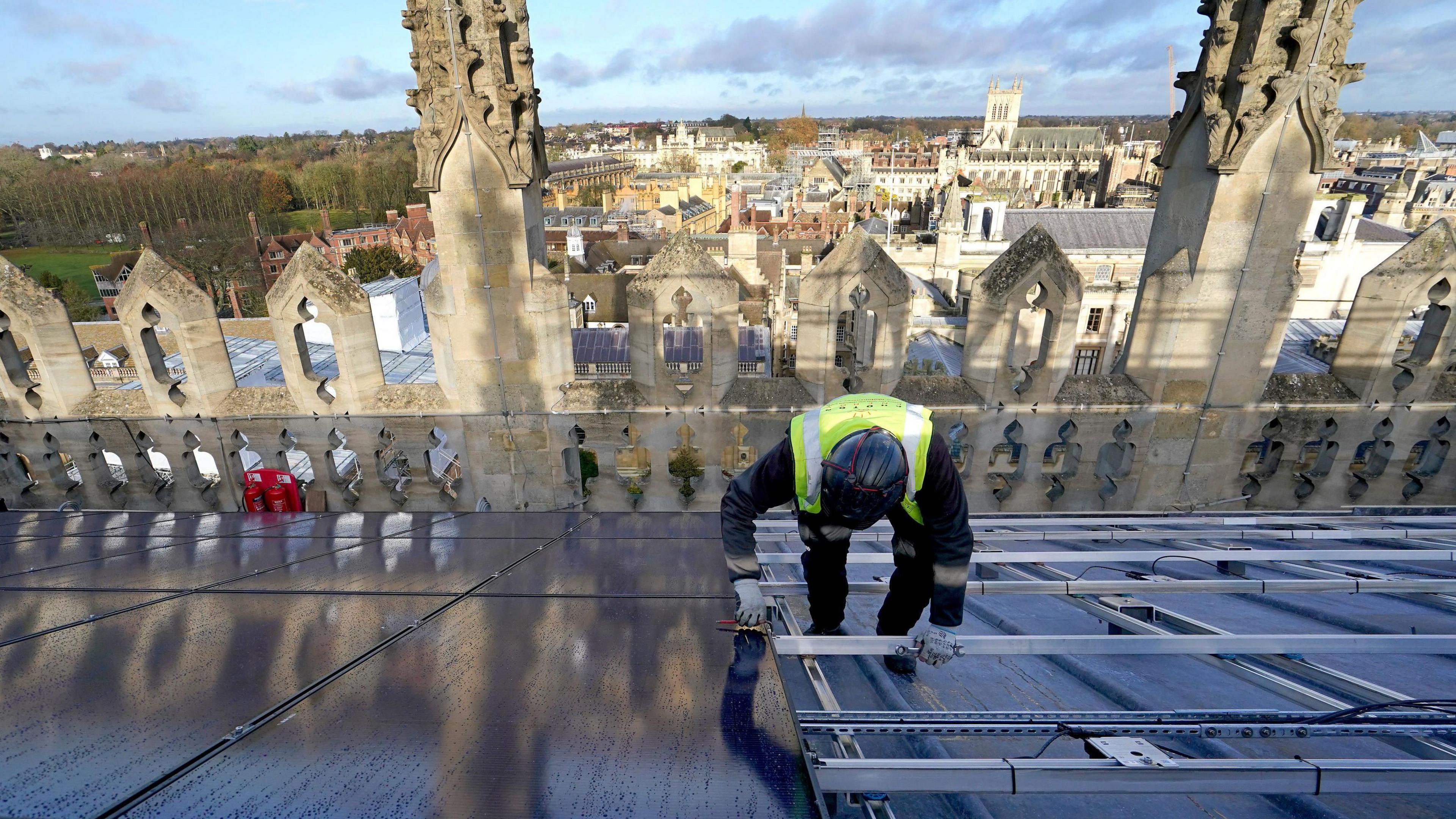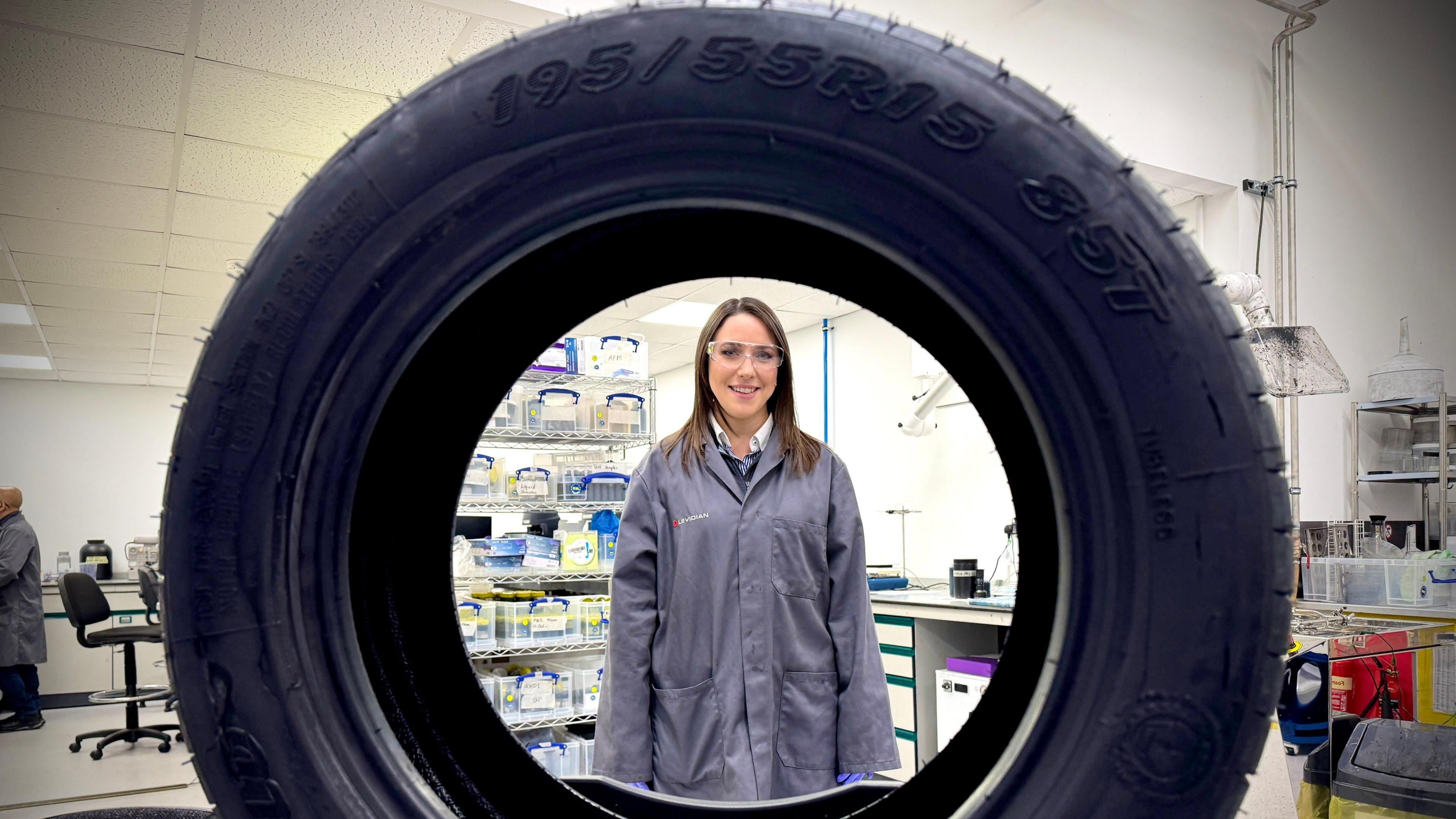City expansion can meet net zero goals - report

A variety of carbon efficient measures are being proposed in a report on how Cambridge can expand and meet its carbon neutral targets
- Published
A new report has outlined how Cambridge can grow sustainably and still meet its increasing demands for energy.
The research by Anglia Ruskin University and business group Cambridge Ahead sets out its blueprint for how the city could achieve its net zero carbon goals by 2050.
The authors said energy demand across greater Cambridge was "projected to at least triple from a 2021 baseline by 2050".
Initiatives highlighted included a community heating network, a thermal energy storage system, mounted wind turbines - and the introduction of Passivhaus, external standards for new buildings to ensure high energy efficiency.
Prof Aled Jones, director of the Global Sustainability Institute at Anglia Ruskin University (ARU), said the Cambridge region had a "unique opportunity as it plans to grow significantly over the next decade while meeting its climate obligations."
'Key challenges'
The report called for the creation of a multi-agency, cross-government working group on energy, to deliver on 12 key recommendations.
This included private sector organisations being encouraged to share best practice of innovative funding models.
Local government working with regulators and national government are urged to forward-fund grant funding to de-risk innovative approaches, such as community-owned projects, and to attract private investment.
Government has been urged to engage with local authorities and the private sector around development plans in Cambridge, and put them on a statutory footing so they are prioritised for funding and become local partners of national delivery vehicles like GB Energy, external, the publicly-owned clean energy company.
Dan Thorp, chief executive officer of Cambridge Ahead, said: "The energy infrastructure report highlights the critical need to align local ambitions with practical solutions for decarbonisation and innovation.
"As energy demand is projected to triple by 2050, we must address key challenges such as grid capacity, skills shortages, and policy barriers."
Get in touch
Do you have a story suggestion for Cambridgeshire?
Follow Cambridgeshire news on BBC Sounds, Facebook, external, Instagram, external and X, external.
More local stories
- Published3 January

- Published14 January
